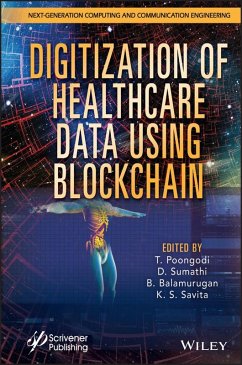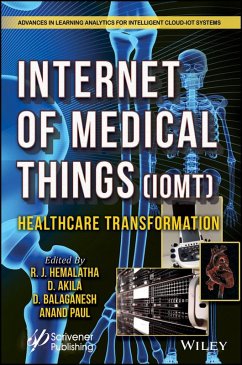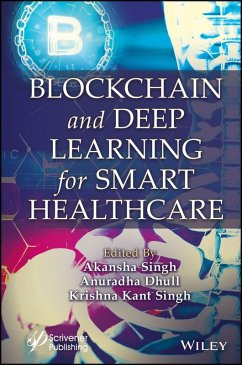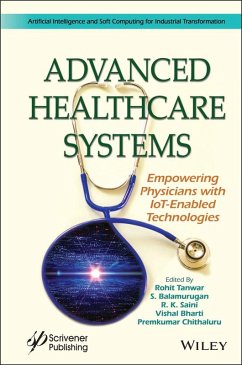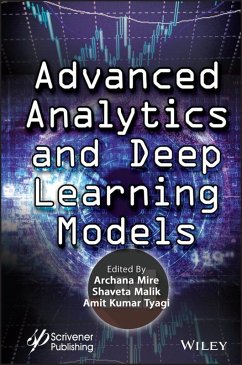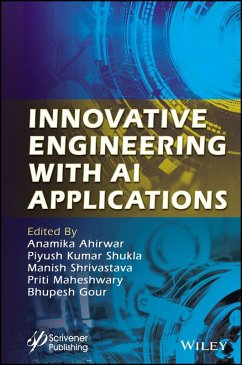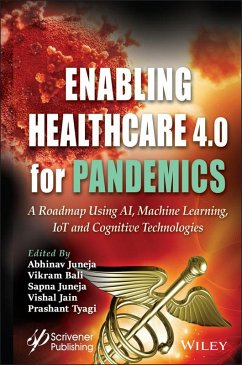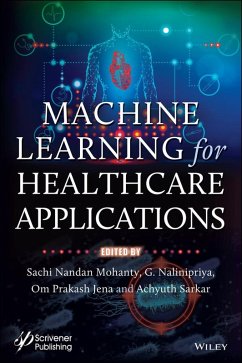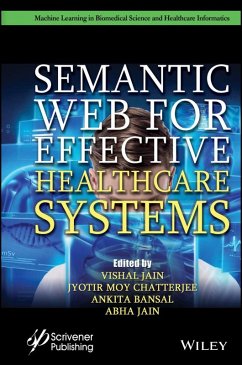
Cognitive Intelligence and Big Data in Healthcare (eBook, ePUB)
Versandkostenfrei!
Sofort per Download lieferbar
205,99 €
inkl. MwSt.
Weitere Ausgaben:

PAYBACK Punkte
0 °P sammeln!
COGNITIVE INTELLIGENCE AND BIG DATA IN HEALTHCAREApplications of cognitive intelligence, advanced communication, and computational methods can drive healthcare research and enhance existing traditional methods in disease detection and management and prevention.As health is the foremost factor affecting the quality of human life, it is necessary to understand how the human body is functioning by processing health data obtained from various sources more quickly. Since an enormous amount of data is generated during data processing, a cognitive computing system could be applied to respond to queri...
COGNITIVE INTELLIGENCE AND BIG DATA IN HEALTHCARE
Applications of cognitive intelligence, advanced communication, and computational methods can drive healthcare research and enhance existing traditional methods in disease detection and management and prevention.
As health is the foremost factor affecting the quality of human life, it is necessary to understand how the human body is functioning by processing health data obtained from various sources more quickly. Since an enormous amount of data is generated during data processing, a cognitive computing system could be applied to respond to queries, thereby assisting in customizing intelligent recommendations. This decision-making process could be improved by the deployment of cognitive computing techniques in healthcare, allowing for cutting-edge techniques to be integrated into healthcare to provide intelligent services in various healthcare applications.
This book tackles all these issues and provides insight into these diversified topics in the healthcare sector and shows the range of recent innovative research, in addition to shedding light on future directions in this area.
Audience
The book will be very useful to a wide range of specialists including researchers, engineers, and postgraduate students in artificial intelligence, bioinformatics, information technology, as well as those in biomedicine.
Applications of cognitive intelligence, advanced communication, and computational methods can drive healthcare research and enhance existing traditional methods in disease detection and management and prevention.
As health is the foremost factor affecting the quality of human life, it is necessary to understand how the human body is functioning by processing health data obtained from various sources more quickly. Since an enormous amount of data is generated during data processing, a cognitive computing system could be applied to respond to queries, thereby assisting in customizing intelligent recommendations. This decision-making process could be improved by the deployment of cognitive computing techniques in healthcare, allowing for cutting-edge techniques to be integrated into healthcare to provide intelligent services in various healthcare applications.
This book tackles all these issues and provides insight into these diversified topics in the healthcare sector and shows the range of recent innovative research, in addition to shedding light on future directions in this area.
Audience
The book will be very useful to a wide range of specialists including researchers, engineers, and postgraduate students in artificial intelligence, bioinformatics, information technology, as well as those in biomedicine.
Dieser Download kann aus rechtlichen Gründen nur mit Rechnungsadresse in D ausgeliefert werden.




